When you hear the name BTEX token, the first thought might be a new crypto exchange that’s popping up alongside the big names. In reality, BTEX is the native token of Blocktrade Exchange, a Swiss‑based platform that has been under the microscope for regulatory gaps, liquidity problems, and a shaky partnership history. If you’re weighing whether to open an account, deposit funds, or simply trade the token, this review breaks down everything you need to know - from the basics of the token to the red flags that have made safety analysts sound the alarm.
What Is BTEX and Who Runs It?
BTEX token is a utility token issued by Blocktrade Exchange, a cryptocurrency trading platform founded in 2018 and registered in Switzerland. The token is meant to offer reduced trading fees on the platform and act as a liquidity‑providing asset for users. However, the exchange itself does not enjoy the same level of regulatory scrutiny as major players like Coinbase or Binance.
The platform, often shortened to “Btex” in media reports, operates without a clear licensing regime. BrokerChooser’s September 2023 safety analysis flagged the platform as “unregulated” and warned that investors have limited recourse if something goes wrong. In short, you’re dealing with a token and an exchange that sit in a gray area of the crypto world.
Regulatory Landscape - Why It Matters
Regulation in the crypto space is the safety net that protects users from fraud, freezes, and sudden shutdowns. Blocktrade Exchange does not hold registrations with the U.S. Securities and Exchange Commission (SEC), the UK’s Financial Conduct Authority (FCA), or the Cyprus Securities and Exchange Commission (CySEC). BrokerChooser’s legal team confirmed that the platform lacks any top‑tier regulator oversight, meaning there’s no governmental body to step in if the exchange freezes assets.
The lack of licensing also makes the platform vulnerable to action from authorities. The SEC’s 2024 guidance explicitly states that entities operating without proper licensing could face asset freezes and legal injunctions, leaving users stranded. For a token like BTEX, which already has limited visibility on reputable exchanges, regulatory uncertainty adds another layer of risk.
Liquidity and Market Data - The Numbers (or Lack Thereof)
When you research a token, the first things you look for are trading volume, order‑book depth, and price history across multiple exchanges. BTEX fails on all fronts. BeInCrypto’s February 2025 technical analysis reported that there is “a lack of accurate trading data for BTEX,” making any price prediction speculative at best.
CoinDataFlow’s May 2024 price model projected a possible rise to $0.04744 by late 2025, but the report was laced with caveats about extreme volatility and the absence of reliable market data. As of October 2025, the token hovered around $0.02066, but even that figure is drawn from limited sources and may not reflect real‑world trades.
Other independent studies, like CoinSutra’s July 2024 comparative analysis, could not locate measurable liquidity metrics for BTEX on any major exchange. In contrast, legitimate platforms such as Bittrex list over 280 crypto pairs, with transparent fee schedules and daily volume figures published on their websites.
Security Practices - What You Can’t See
Security is the biggest selling point for reputable exchanges. They often publish cold‑storage percentages, insurance policies, and audit reports. For Blocktrade, there is a complete void. No third‑party audit has been disclosed, and the platform’s security architecture is undocumented in credible sources. This omission makes it impossible to gauge how much of the platform’s assets are stored offline or protected against hacks.
In the broader crypto community, users on niche forums have reported failed withdrawal attempts and unresponsive support since Q32024. While anecdotal, the pattern aligns with the platform’s overall opaqueness. Without verifiable security protocols, every deposit feels like placing money in an unmarked safe.
Fees and Cost Structure - The Hidden Charges
One of the main draws of a native token is fee discounts. Blocktrade claims BTEX holders receive lower trading fees, but the exact percentages are nowhere to be found. BrokerChooser’s 2023 safety assessment noted that the exchange provides “no verifiable information about trading costs, withdrawal fees, or account maintenance charges.” In comparison, Bittrex openly lists a flat 0.25% taker fee and a transparent withdrawal schedule.
When you can’t see the fee schedule, you can’t accurately calculate the cost of a trade. Hidden fees can quickly eat into any potential upside, especially with a token that already exhibits thin liquidity.
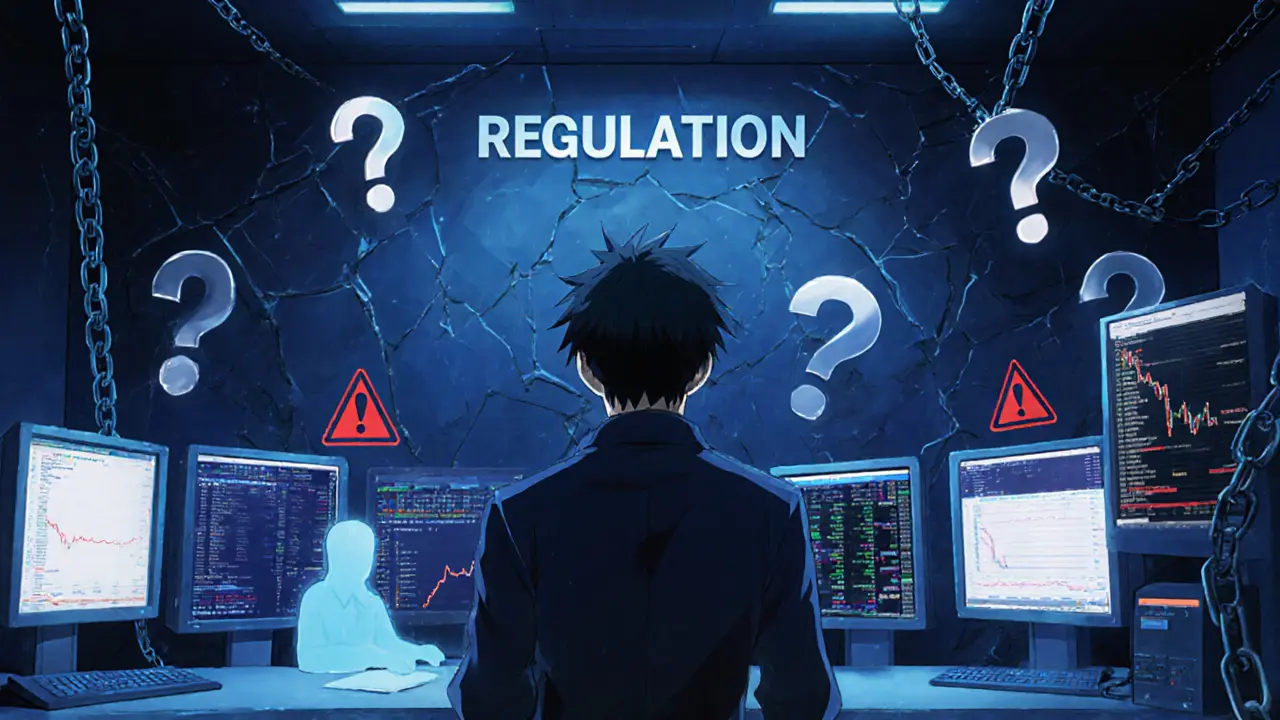
Customer Support - A Ghost Service
Responsive support is a hallmark of trustworthy platforms. BrokerChooser’s investigative team tried multiple contact methods in May2023 - email, live chat, and phone - and received no response. This silence contrasts sharply with regulated exchanges that typically publish average response times and offer 24/7 live assistance.
For a user who encounters a failed withdrawal or a frozen account, the lack of a reliable support channel means you’re left to troubleshoot on your own, often with little recourse.
Partner Fallout - The myWorld Insolvency Impact
In September2025, myWorld, a major partner of Blocktrade, declared insolvency. The fallout was immediate: “almost 90%” of assets tied to the collapsing ecosystem were affected, according to Bekm.us. This crisis cast serious doubts on the token’s intrinsic value and raised questions about the financial stability of Blocktrade itself.
Investors who held BTEX or used the platform to trade other assets suddenly found themselves exposed to a partner’s legal and financial woes. It’s a stark reminder that the health of a crypto exchange can be tightly linked to the fortunes of its business partners.
How BTEX Stacks Up Against Legitimate Exchanges
| Feature | BTEX/Blocktrade | Bittrex |
|---|---|---|
| Regulatory License | None (unregulated) | SEC‑registered, FCA‑registered |
| Trading Pairs | Limited, no public list | 280+ pairs |
| Liquidity Data | Not publicly available | Transparent daily volume |
| Fee Transparency | Undisclosed, claims of discounts | 0.25% taker fee (public) |
| Security Audits | No third‑party audit disclosed | Annual third‑party audit, cold‑storage 95% |
| Customer Support | Unresponsive (no contact) | Live chat, email, 24/7 |
| Partner Stability | myWorld insolvency (2025) | Stable, diversified partners |
Red Flags to Watch For
- Unregulated status - no oversight from SEC, FCA, or CySEC.
- Opaque fee structure - no public data on trading or withdrawal costs.
- Lack of liquidity - no reliable volume or order‑book depth.
- Missing security disclosures - no audit reports or cold‑storage details.
- Unresponsive support - attempts to contact have failed.
- Partner insolvency - myWorld’s collapse raises systemic risk.
If any of these appear in your due diligence checklist, treat them as strong signals to steer clear.
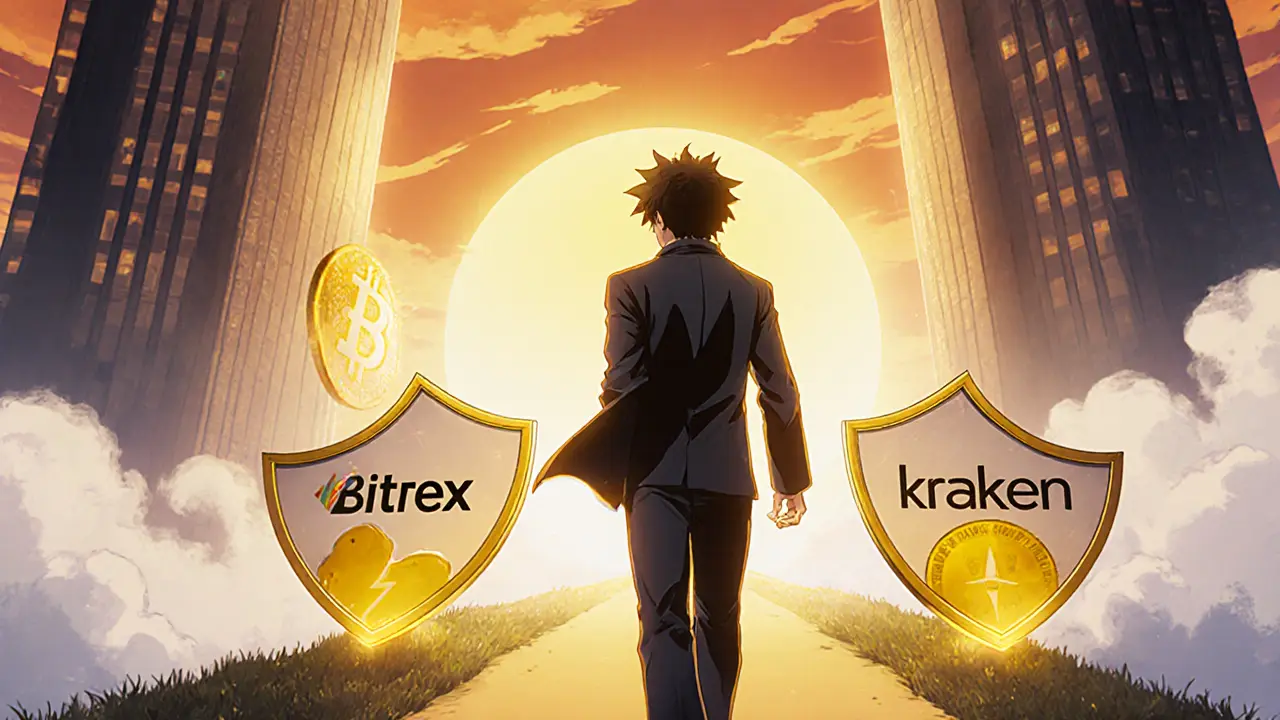
Potential Use Cases - When Might BTEX Still Appeal?
Honestly, the list is short. Some niche traders might be attracted by the promise of lower fees if they manage to verify the discount structure. Developers looking for a token to build a proprietary ecosystem could experiment on a sandbox version of Blocktrade, assuming they accept the risk. However, for most retail investors, the cons outweigh any speculative upside.
Future Outlook - What’s Next for BTEX?
As of October2025, there is no announced roadmap, no active GitHub repository, and no visible community development. The consensus among financial safety analysts is grim: without regulatory approval, transparent operations, or a stable partner network, BTEX’s long‑term viability remains doubtful. Even optimistic price models from CoinDataFlow come with heavy disclaimers acknowledging “exceptionally unstable” market conditions.
If Blocktrade decides to seek licensing or partners with a regulated entity, the token could regain some credibility. Until then, the safest move is to avoid allocating capital to BTEX and focus on exchanges that publish clear data, undergo regular audits, and hold recognized licenses.
Bottom Line - Should You Trade BTEX?
Given the regulatory vacuum, missing liquidity, undocumented security, and recent partner fallout, the risk profile of BTEX is among the highest you’ll encounter in the crypto space. If you value transparency, fund safety, and the ability to withdraw without a fight, look elsewhere. Exchanges like Bittrex, Coinbase, or Kraken provide the safeguards that Blocktrade lacks.
Frequently Asked Questions
Is BTEX token listed on major exchanges?
No. BTEX primarily trades on the Blocktrade platform, which is not listed among the major regulated exchanges. Its presence on other venues is either negligible or non‑existent.
What regulatory risks does holding BTEX involve?
Because Blocktrade lacks licensing from bodies like the SEC, FCA, or CySEC, regulators could freeze or seize assets without a clear legal recourse for users. This makes the token high‑risk from a compliance standpoint.
How does the myWorld insolvency affect BTEX?
myWorld was a key partner of Blocktrade. Its 2025 insolvency triggered a cascade of financial uncertainty, with reports indicating that up to 90% of assets linked to the ecosystem were jeopardized. The fallout casts doubt on BTEX’s underlying value.
Are there any fee discounts for BTEX holders?
The platform claims reduced fees for BTEX holders, but no concrete numbers are published. Without a verifiable fee schedule, the actual benefit remains unclear.
What should I do if I already own BTEX?
Consider transferring the tokens to a personal wallet you control, reduce exposure, and stay updated on any regulatory announcements. Keep an eye on official statements from Blocktrade and watch for any new licensing attempts.



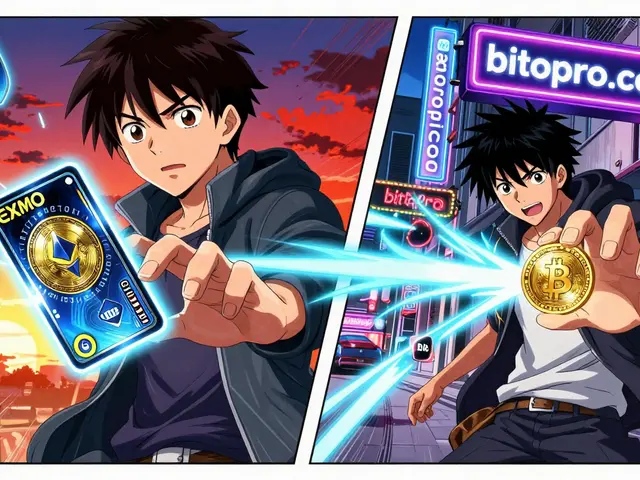
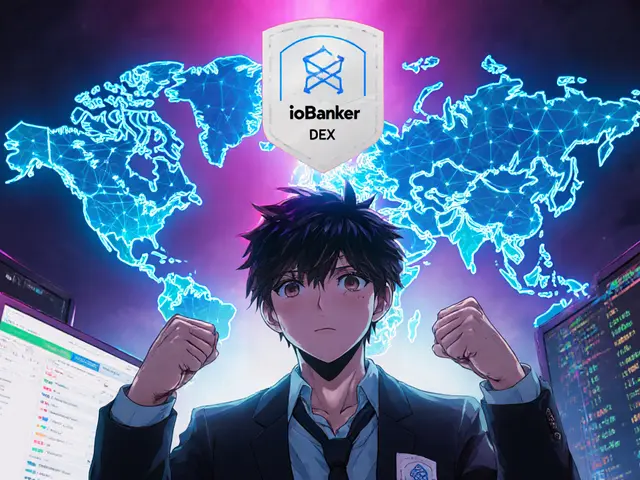
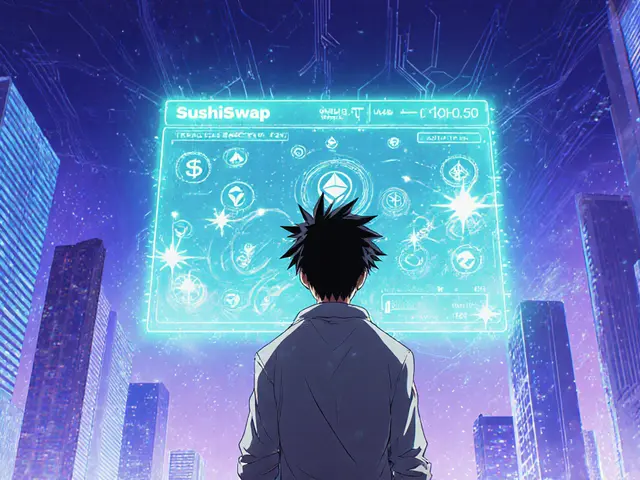


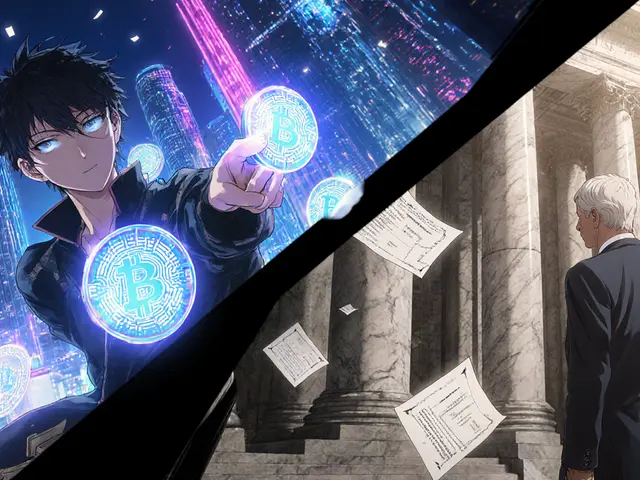

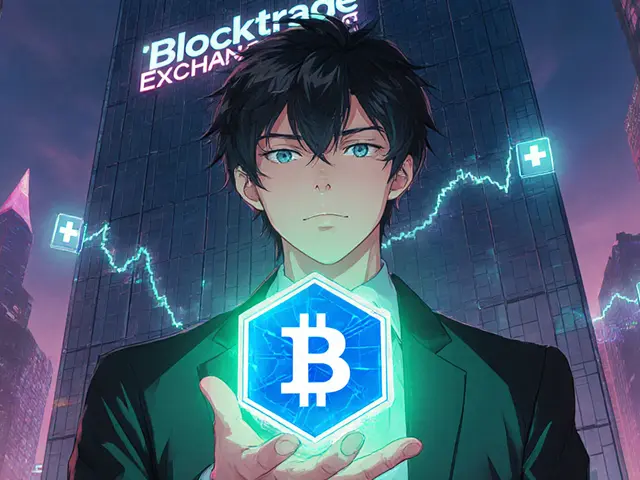
Comments (19)
Millsaps Crista
October 16, 2025 AT 08:06 AMThe BTEX token sits on a precarious edge between hype and hazard. Its native exchange, Blocktrade, offers the allure of fee discounts but lacks the regulatory backbone most traders rely on. When you weigh risk versus reward, the first thing to check is whether the platform is licensed in any major jurisdiction. In this case, there is no SEC, FCA, or CySEC registration, which means you have no safety net if the exchange freezes assets.
Moreover, liquidity on BTEX is practically invisible, making price manipulation a real threat. The absence of transparent order‑book data means you’re essentially guessing the market depth. Security reports are also missing; no third‑party audit has ever been published for Blocktrade. Users on forums have flagged withdrawal delays and unresponsive support, a red flag that should not be ignored.
Adding to the concerns, the myWorld partnership collapsed, pulling almost ninety percent of associated assets into turmoil. This chain reaction illustrates how fragile the ecosystem really is. If you’re looking for a token with solid backing, you might consider alternatives that trade on regulated exchanges. Bittrex, Coinbase, and Kraken all publish clear fee schedules, audit reports, and have licensed status. Their liquidity pools are deep enough to handle sizable trades without slippage nightmares. While the promise of lower fees on BTEX sounds tempting, the hidden costs could wipe out any gains. You should also keep your tokens in a personal wallet where you control the private keys. Bottom line: treat BTEX as a speculative gamble and only allocate money you can afford to lose.
Matthew Homewood
October 20, 2025 AT 09:26 AMThe lack of regulatory oversight makes BTEX a high‑risk proposition. From a philosophical standpoint, investing without clear legal frameworks challenges the principle of trust. Passive investors tend to suffer more when darkness falls on an unregulated platform. The token’s thin liquidity further compounds the uncertainty. In short, caution is the wiser path.
Shane Lunan
October 24, 2025 AT 10:46 AMBTEX looks like a scam. No licenses no data. Stay away.
Jeff Moric
October 28, 2025 AT 11:06 AMI hear the frustration many feel after seeing the myWorld fallout. It’s tough when a partner’s collapse drags your assets into chaos. Remember that you can always move your tokens to a self‑custodial wallet for added safety. If you need a sounding board, the community is here to share experiences. Ultimately, protecting your capital should be the priority.
Bruce Safford
November 1, 2025 AT 12:26 PMListen, the whole BTEX saga smells like a hidden agenda. The exchange claims they’re legit but there’s no proof in the sandbox. I’ve seen papers that say they’re “unregulated” yet they keep shouting about “security”. Some insiders whisper that the myWorld collapse was just the tip of an iceberg. Don’t be fooled by glossy marketing – the code behind the token is barely visible. Bottom line, keep your cash far from this mess.
Blue Delight Consultant
November 5, 2025 AT 13:46 PMYour concerns are certainly valid, and the lack of public audits raises legitimate doubts. While the platform markets fee reductions, the exact percentages remain undisclosed, which is troubling. From a philosophical perspective, transparency is a cornerstone of trust in any financial system. Until Blocktrade provides verifiable documentation, caution remains advisable.
Wayne Sternberger
November 9, 2025 AT 15:06 PMIndeed, the regulatory vacuum surrounding BTEX cannot be ignored. The absence of licensing from recognized authorities such as the SEC or FCA creates a precarious environment for investors. Furthermore, the opaque fee structure hampers accurate cost calculations. For these reasons, a prudent investor should consider alternative assets with clearer oversight.
Gautam Negi
November 13, 2025 AT 16:26 PMIt is tempting to dismiss BTEX outright as another fly‑by‑night token, yet history teaches that some overlooked projects later blossom. The dramatic collapse of myWorld could be construed as a catalyst for a restructuring phase. If Blocktrade were to secure a reputable partner, the token’s utility might gain traction. Of course, such a turnaround hinges on regulatory approval, which remains uncertain. In the meantime, the market’s skepticism serves as a useful barometer of risk.
Shauna Maher
November 17, 2025 AT 17:46 PMDon’t romanticize a failing platform; it’s a sinking ship. Keep your money out before it drags you under.
Kyla MacLaren
November 21, 2025 AT 19:06 PMAgreed, the lack of clear data makes BTEX a gamble. It’s better to focus on coins with solid backing. Let’s keep sharing info to protect each other.
Linda Campbell
November 25, 2025 AT 20:26 PMThe BTEX scheme represents yet another attempt to undermine the financial sovereignty of our nation. Its unregulated status contravenes the principles of a stable economy. Investors entrusting their capital to such a dubious entity jeopardize national fiscal health. Therefore, I counsel complete abstention from any involvement with BTEX.
John Beaver
November 29, 2025 AT 21:46 PMHere’s the bottom line: if you want to trade, move your BTEX to a hardware wallet you control. The exchange’s withdrawal delays are a red flag you can’t ignore. Check the transaction history on a block explorer for any irregularities. And always keep a backup of your seed phrase in a safe place.
EDMOND FAILL
December 3, 2025 AT 23:06 PMSo what’s the actual fee discount for BTEX holders? I haven’t seen any numbers on the site. Maybe someone dug up the contract details? If you have any screenshots, drop them here.
Jennifer Bursey
December 8, 2025 AT 00:26 AMThe fee‑reduction mechanism is buried in the smart‑contract’s vesting module, which only activates after a certain volume threshold is met. In layman’s terms, you won’t see a noticeable discount until the token achieves liquidity depth that currently doesn’t exist. This hidden clause is typical of projects that promise incentives without transparent disclosure. Until the code is audited and published, the term ‘discount’ remains ambiguous.
Maureen Ruiz-Sundstrom
December 12, 2025 AT 01:46 AMOne could argue that BTEX is a social experiment in trust erosion. The platform’s opacity forces investors to confront the fragility of perceived value. Yet, such existential risk is rarely compensated by marginal fee savings. In the grand scheme, the token offers little more than a cautionary tale. Hence, I advise steering clear.
Kevin Duffy
December 16, 2025 AT 03:06 AMSounds risky, stay safe! 😊
Tayla Williams
December 20, 2025 AT 04:26 AMIt is morally indefensible to promote a token that operates in legal shadows. Participants should be warned of the ethical implications of funneling money into such ventures. I urge regulators to clamp down on these dubious schemes.
Brian Elliot
December 24, 2025 AT 05:46 AMYour question about fee transparency is spot on, and it reflects a healthy skepticism. When an exchange refuses to publish its cost structure, it undermines user confidence. A transparent fee schedule should be readily accessible on the platform’s website. Until that happens, exercising caution is the most responsible approach.
Marques Validus
December 28, 2025 AT 07:06 AMLet me tell you BTEX is the wild west of crypto a real frontier of chaos and opportunity the market loves drama and we thrive on it but beware the hidden fees and the ghost support that will leave you hanging the myWorld collapse was just a plot twist not the ending if you can survive the turbulence you might cash in big so keep your eyes peeled and your wallet ready